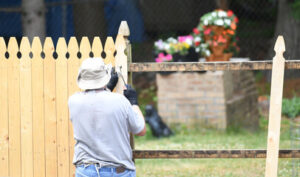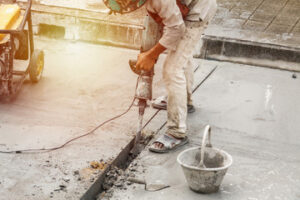Fence Repair – Things You Shouldn’t Do Yourself
Regular inspections will help to identify and address damage before it becomes worse. This will keep your fence looking its best and extend its lifespan.
Minor issues like cracks and loose boards can be repaired with a bit of work and minimal expense. But more extensive damage like rot and decay may require comprehensive repair and replacement sections, escalating costs significantly. Visit https://fencingsummerville.com/ to learn more.

While it’s tempting to do a bit of DIY fence repair, replacing panels is usually best left to the professionals. A damaged panel is not only a visual blemish, but it can also be a safety hazard and lead to further damage to your yard and home. To avoid this, it’s important to do regular inspections of your fence and address any issues right away. Look for signs of damage such as splintering, warping, cracks, rot or insect infestation. Inspect and tighten any loose screws or nails, and replace any rusted ones with new exterior-rated fasteners.
Depending on the extent of the damage, your fence panel may need to be replaced entirely. This can be accomplished by detaching the neighboring panels, removing the damaged one and installing a new panel in its place. This is a fairly quick and simple process, but can be tricky if you’re dealing with large panels or high-end materials.
If your panel is merely dented or scratched, it can often be repaired by using wood glue and screws or nails. This should be done quickly before the glue dries and prevents the panel from becoming more damaged. To do this, simply pull the panel from the posts, clean off any remaining adhesive or cement and remove the old screw or nail. Then use a drill to make a pilot hole where the screw or nail used to be, then add a wood glue to the spot and attach the replacement screw or nail.
If the panel is sagging, leaning or broken in multiple places, it’s probably time to call in the experts. Reinforcement methods include adding tension bands or braces to the fence, connecting them to horizontal support beams, or resetting the posts. The latter involves digging around the base of the post, removing any dirt or grass, then pouring in quick-set concrete.
Once the fence is repaired, a good idea is to stain it with an exterior-rated stain or sealant to protect against moisture. This will help extend the life of your fence, and will keep it looking great for longer.
Posts
Posts are the backbone of your fence, and they come in many different shapes, sizes, and materials. Each offers unique benefits. Wood posts offer a classic aesthetic, while metal and concrete posts are lauded for their strength and durability. The right post material depends on climate, scope of the project, and budget.
For the ultimate in longevity, look for rot-resistant woods such as cedar or redwood. However, even these natural options may succumb to damage due to weather exposure, so it’s crucial to apply a protective sealant and conduct regular inspections. For the cost-conscious, treated pine or pressure-treated vinyl are suitable alternatives.
Steel and aluminum posts are strong, rust-resistant, and work well in coastal areas where salt air is common. These are also lightweight, making them easier to install and move around the yard. They can also be galvanized to prevent rust and corrosion for an extra layer of protection.
To extend the life of your wooden fence, regularly apply a protective sealant and replace any cracked or damaged boards. Inspect each board for signs of rot or wear, and remove it if necessary. Ideally, post holes should be dug deep enough to reach the bottom of the footing, and they should be spaced no more than 8 feet apart. In addition, burying posts in concrete provides additional stability.
When a fence post fails, it can cause serious damage to the surrounding panels and rails. Depending on the extent of the damage, it may be necessary to replace the entire post. Fortunately, it’s possible to stabilize a broken post with a temporary brace while you wait for an expert to arrive.
Begin by removing any fence panels or rails attached to the damaged post. This will give you clear access to the base of the post, and allow you to inspect its condition. Ensure that the crack or break is located in the middle of the post, and not at the top or bottom, as this will impact the stability of your fence. Next, dig out the damaged section of the post using a shovel and remove any concrete or gravel that was used to secure it. Fill the hole with fast-setting concrete mix according to package directions and tamp firmly to eliminate air pockets. Allow 24-48 hours for the concrete to set before reattaching the fence panels or rails.
Pickets
The pickets, or slats, that make up the body of your fence are more than just a safety and security issue, they also determine how the entire fence looks. Cracked, chipped, or broken pickets not only detract from your home or business’ curb appeal they can also be a hazard for children and pets who may run into them and cause dangerous injuries. Replacing damaged pickets is an easy fix for your handyman, and depending on how extensive the damage is can be a quick repair or an improvement (see below).
Fences are made of many different materials like wood, vinyl, and metal but a classic picket fence still holds a lot of charm. The type of material you choose will largely be determined by the look you’re going for as well as your budget. Wood fences are a good choice for those looking for a natural and rustic appearance but will require more maintenance than vinyl or metal.
When your fence has a lot of weather damage it can become discolored and worn out. Staining your fence can give it a fresh new look, as well as protect the wood from moisture and sun damage. Staining can be done by a professional service technician or with a home staining kit. Before staining a wood fence it is recommended that you use a power washer to get rid of any dirt and debris on the surface. This will prevent the stains from peeling or chipping and also allow the stain to penetrate deeper into the wood for better durability.
Wood fences can be stained in a variety of colors but you will want to use a stain that will last. A high quality oil based stain will ensure that the finish stays strong and does not flake or rub off. If you are using a sprayer make sure that you have proper protection for surrounding areas, such as tarps and drop cloths to avoid overspray or spills. A few simple precautions can help your fence last longer – keep trees and shrubs away from the fence as their roots can eventually push into and damage it, and regularly prune branches that hang over the fence.
Railings
Stair railings are a vital safety feature that add to the curb appeal of your home. They are available in a variety of styles to match the architectural style of your house and complement other exterior features. Adding or replacing stair railings can improve the appearance of your home and may increase its value. Stair railings can also help your family members and guests navigate the stairs safely. There are many different types of stair railings to choose from, and you can even have them customized to suit your personal taste.
Whether your railings are made of wood or metal, the main factor in their longevity is how well they’re maintained. A regular inspection and routine maintenance can prevent the need for repairs and prolong their lifespan.
Inspect your railings for loose screws, bolts, and other hardware that can loosen due to repeated freezing and thawing cycles. A few tightenings of these fasteners can restore stability to the railing.
The arch-nemeses of metal railings are corrosion and rust. Rust spots are not only unsightly, but they can also weaken the structure of the railing and compromise its integrity. If you see signs of rust, it’s important to take action immediately. A bit of sanding and fresh coat of paint can usually remedy these issues, but in severe cases, replacement may be the safer option.
If you notice major structural damage like large cracks, extensive rust, or significant wobbling, it’s best to call in a professional. These issues require specialized tools and carpentry skills that are beyond the scope of most DIY homeowners. In addition, attempting to make these repairs yourself could be dangerous and lead to worse problems down the road.
When selecting a contractor to repair your fence, look for one with experience working on similar projects. Check their references and credentials, and ask about their pricing and warranty. They should also be able to provide you with samples of previous work. Finally, make sure that they are licensed and insured. This will give you peace of mind that the work is being done correctly and will comply with local building codes.




